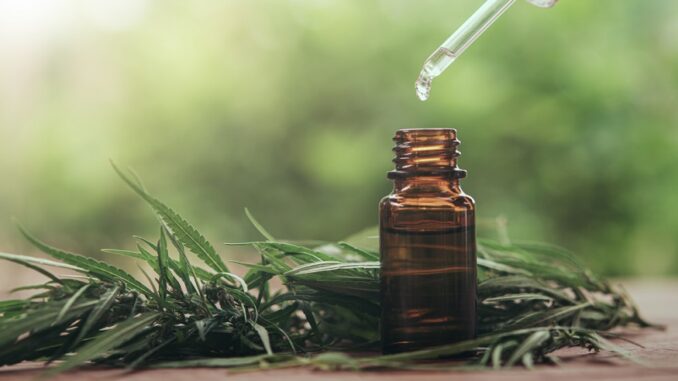
If you have been following the progress of marijuana legalization over the last several years, you may be familiar with the term ‘decarboxylation’. Though a complicated-sounding term, it describes a process that turns ordinary cannabinoids into active compounds. Knowing this leads to an obvious question: does CBD distillate have to be decarboxylated to be beneficial?
For the purposes of this post, CBD distillate refers to the full-spectrum oil extracted from cannabis plants. A full-spectrum oil contains CBD (cannabidiol), THC, and more than a hundred additional cannabinoids, terpenes, and flavonoids. Processors may decarb full-spectrum oils or isolate certain cannabinoids in order to decarb them in advance of adding them to product formulas.
Inactive and Active Cannabinoids
Most varieties of cannabis plants contain more than a hundred phytocannabinoids. These compounds contain a carboxyl group that essentially makes the phytocannabinoids little more than organic acids. As long as the carboxyl group remains intact, phytocannabinoids have little effect.
This explains why ingesting unprocessed cannabis flower doesn’t do much for you. The effectiveness of any cannabinoid is directly related to how it interacts with the brain. So if interaction is limited by the presence of a carboxyl group, very little benefit is derived from that plant.
In order to maximize cannabinoid effectiveness, you have to get rid of the carboxyl group. That is the whole point of decarboxylation. By decarbing CBD distillate, processors maximize the effectiveness of their cannabinoid formulas.
Speeding up the Process
CedarStoneIndustry, a Houston company that supplies CBD extraction equipment to the cannabis industry, explains that cannabis plants naturally decarb phytocannabinoids on their own. But the process is painstakingly slow. Waiting for a cannabis plant to naturally reach full potency would be akin to watching paint dry.
Allowing for complete natural decarboxylation would take too long. Therefore, processors speed things up by introducing heat. This is done during the extraction process. Exposing CBD distillate to heat supplies the carboxyl group with enough energy to break loose from the CBD molecule. Once that happens, you no longer have an organic acid. You have an active cannabinoid.
Decarbing at Home
The fact that cannabis processors decarb CBD distillate during the extraction process doesn’t help consumers who purchase unprocessed cannabis flower. What do they do? They can decarb the flower at home. As a side note, burning marijuana does exactly that. Combustion initiates decarboxylation on the fly.
In the absence of smoking cannabis, you might want to utilize raw flower to make cannabis butter, cannabis-infused drinks, and so on. You can use the flower as-is or decarb it first. Just remember what the whole point of decarboxylation is.
Some people decarb by breaking up the plant material and drying it out in the oven. Then they grind up the dried material and add it to their recipes. The one downside to this particular method is that it creates the unmistakable odor most people associate with smoking marijuana.
Other people decarb plant material by mimicking what processors do. They may slow cook raw flower in a bit of olive oil, then drain the oil through cheesecloth after it cools. This process simultaneously extracts CBD oil and decarbs it. You could accomplish the same thing in a crock-pot by adding raw flower to a sauce or soup recipe.
The one thing to remember is that enjoying the full benefits of the cannabis plant requires getting rid of that pesky carboxyl group. You can consume CBD distillate without decarbing it first, but you will not get the full effect of the cannabinoids. If you want your cannabinoids fully active, they have to be decarbed.

Leave a Reply
You must be logged in to post a comment.